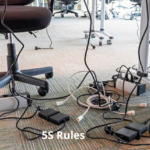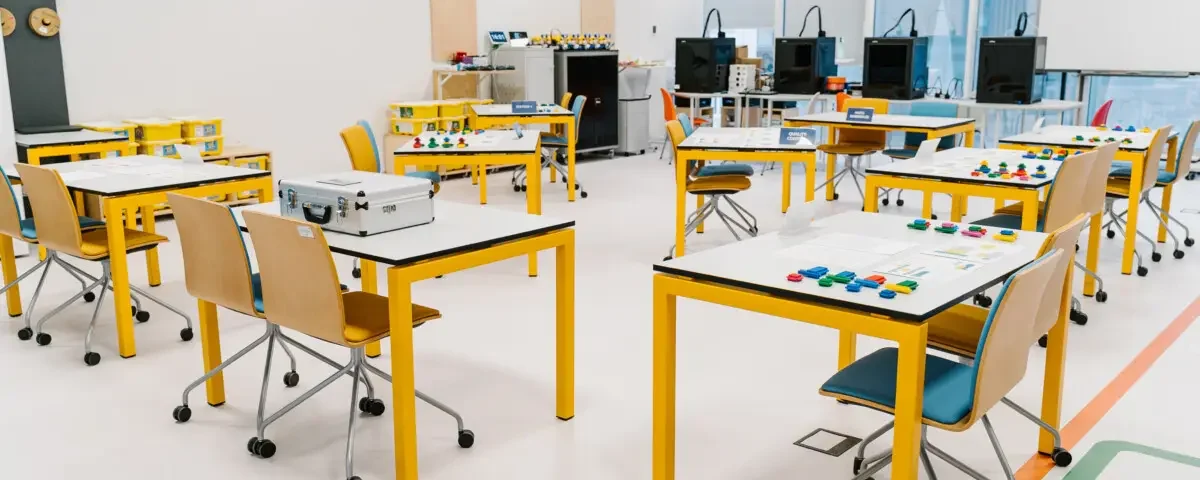
Effective Strategies for Lean Implementation Success
January 23, 2025
Implementing 5S for Workplace Efficiency
February 6, 2025Exploring the Benefits of Lean Management Games
Lean management helps companies work better and use less resources. Many companies use this method to do better work and get more done.Doing so aims to achieve better results and ensure their operations run more efficiently.
But how can organizations effectively teach and implement lean principles? Enter lean management games. These tools let you practice and learn about lean methods. This article will examine the benefits of lean management games and how they can change an organization.
What Are Lean Management Games?
Lean management games are activities that mimic real business situations. These are tools that help people learn and use lean principles. They make the process fun and engaging.
Participating in these games allows individuals to experience lean management concepts, such as waste reduction, continuous improvement, and efficient workflow.
Types of Lean Management Games
Various lean management games are available, each focusing on lean principles. Here are some popular ones:
- Lean Manufacturing Simulation Games: These games simulate the manufacturing process, highlighting inefficiencies and teaching players how to optimize production lines.
- 5S Lean Manufacturing Games: These games focus on the 5S methodology—Sort, Set in order, Shine, Standardize, and Sustain—to organize and maintain a productive work environment.
- Lean Workshop Games: These interactive workshops use games to teach lean principles in a group setting, promoting teamwork and problem-solving.
Benefits of Lean Management Games
Lean management games offer several benefits for organizations that want to use lean practices. These interactive games are good tools to show essential ideas in lean methodology. They help people learn to cut waste, work better, and increase output. By doing these simulations, teams can better understand how to use real-life lean practices.
This helps them move to a leaner organization more quickly. These games help people work together. They build a workplace culture that focuses on personal and professional growth. They ask everyone in the company to improve their skills and abilities.
This focus on improvement helps each employee and also makes the organization more effective and successful. They use various programs and tools to help create a space where everyone feels supported and can improve their work.
Enhances Learning and Retention
One of the primary benefits of lean management games is that they enhance learning and retention. Traditional training methods can be dull and unexciting. This can cause people to lose interest and forget what they learn. Lean games, on the other hand, are interactive and engaging, making it easier for participants to absorb and remember lean concepts.
Promotes Teamwork and Collaboration
Lean management games usually need people to cooperate. They solve problems and reach shared goals together. This helps people work together, which is important for a good lean process. When team members play a game together, they learn to communicate effectively, share ideas, and help others achieve their goals.
Provides Real-World Application
Another benefit of lean management games is that they offer a safe space for people to practice lean principles. There are no real-world risks involved. This hands-on method allows people to try out different strategies. They can then see the results and improve their skills before using them at work.
Encourages Continuous Improvement
Lean management focuses on always getting better. Lean games help people find better ways to improve processes and remove waste. This way of thinking about improving can be used in daily work. It helps increase efficiency and productivity.
Implementing Lean Management Games in Your Organization
To successfully implement lean management games in your organization, consider the following steps:
Identify Your Objectives
Before introducing lean games, it’s essential to identify your objectives. What do you hope to achieve through these games? Clear goals will help you pick the right games. They will also help you see how well the games work. This can improve workflow, cut waste, and boost teamwork.
Choose the Right Games
Many lean management games are available, each with its own focus and learning outcomes. Choose games that align with your objectives and suit your team’s skill level. Whether you opt for lean manufacturing simulation games, 5S games, or lean workshop games, ensure they are relevant and engaging for your participants.
Facilitate and Debrief
During the game, act as a facilitator to guide participants, provide feedback, and encourage discussion. After the game, hold a meeting to discuss what happened, share important lessons, and find ways to improve. This reflection is important. It strengthens what participants learned and ensures that they can use this knowledge in their jobs.
Measure Success
To assess the effectiveness of your lean management games, create ways to track progress and evaluate the results. This could mean making work faster, using less resources, or working better together as a team. Check these numbers often to see how the games are doing. Make changes to your plan if needed.
Real-Life Examples of Lean Management Games
Many groups have used lean management games to improve their lean efforts. Here are a few examples: The Lean Game: A popular choice among organizations, the Lean Game simulates a manufacturing environment in which participants must identify and eliminate waste to improve production efficiency.
Many companies use this game to teach workers about lean principles and improve processes. Lean Activity Game s: These games focus on lean activities like value stream mapping or kaizen events.
By participating in them, employees gain a deeper understanding of lean tools and how to apply them. Lean manufacturing training games help make training better. They let you practice the ideas you learn in class. They help support learning and ensure employees can use lean principles.
Conclusion
Lean management games are valuable tools for teaching and using lean ideas in organizations. These games can help you learn better, work together more, use what you learn in real life, and keep improving. They can make a big difference in your lean projects.
Whether you’re new to lean or looking to deepen your team’s understanding, lean management games offer a fun and effective way to achieve your goals. Using lean games in your training can change how your organization works. It can help with efficiency and productivity, leading to better results and success.


